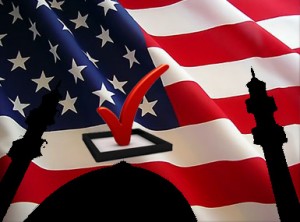 By SpearIt
By SpearIt
With election day around the corner, millions of Americans will be out voting; there will be races for governor, mayor, initiatives, and a variety of public offices. Many, however, will be denied this opportunity due to their criminal record. Increasingly, this is the case for Muslim-Americans.
In this country, felony convicts are saddled with a host of unseen penalties, commonly called “collateral consequences.” These sanctions, restrictions, and exemptions result from civil laws that work against criminal convicts. Although ranging in scope and severity at the state and federal level, common limitations include housing, employment, and licensing restrictions. Moreover, civil duties such as jury duty and voting are unavailable to convicted felons.
All states except two, Maine and Vermont, place some form of voting restriction on convicted felons. While 13 states and the District of Columbia prohibit voting only during imprisonment, thirty-five states extend disenfranchisement to probation, parole or both; in some states the restriction may be permanent. The political impact of felony disenfranchisement is that nearly 6 million people in the United States are prohibited from voting due to their criminal record.
Over time, this practice has greatly weakened the voting power of some communities more than others, resulting in a peculiar form of voter dilution. The math is simple: disparity in criminal justice equals disparity in political representation. Even though ethnic minorities, women, and the poor have always faced practical obstacles in voting, felony disenfranchisement appears to be one of the most effective methods to counter decades of advancements in voting-rights.
Despite being minorities in society, African-Americans and Latino-Americans are hardest hit since they represent a majority of felony convicts. Nevertheless, for Muslim America, the situation may be direr.
This is partly due to Islam’s success in attracting followers in prison. Although people from all backgrounds convert to Islam in prison, it has become a trope among African-Americans, the largest population behind bars. According to some scholars, prison officials, and chaplains, Islam is the fastest growing religion in prison. Although there are no hard figures, it has been estimated that 30,000 to 40,000 prisoners convert to Islam annually in prison, totaling to a population of some 350,000 Muslims who are currently incarcerated. In federal prisons, it is estimated that 9 percent of the population is Muslim.
How these figures map onto the general Muslim population is uncertain since there are no reliable census figures for Muslims in the United States; estimates range from 2-8 million adults. At first blush, the low range weighted against the prison population leads to a striking proposition: nearly fifteen percent of adult American Muslims are in prison.
Even granting that this may be an inflated calculation, there is little doubt about the raw scale of collateral consequences on Muslim voting power. Although there has been little to no research on the justice system’s impact on Muslim voting rights, it is not difficult to fathom that Muslims comprise a significant portion of prisoners, since they are a significant portion of the 700,000-plus inmates released from prison each year. It is a political irony: the more successful Islamic outreach is in prison, the weaker the political power of Muslims outside.
This trend trumps 150 years’ worth of civil rights struggle and contributes to the creation of a caste system in America. Meanwhile, it is difficult to see how felony disenfranchisement furthers state interests, particularly since voting issues rarely relate to the crime of conviction. More certain, the practice ensures that felons will have little stake in the political system. This consequence may work against rehabilitation since ex-prisoners are unable to use political processes to resolve their issues and instead may be forced to the type of extra-legal behavior that landed them in prison in the first place.
Despite the many unanswered questions about the relationship between the criminal justice system and Muslim communities, the political ramifications loom large. Muslims thus have a huge stake in counteracting felony disenfranchisement as well as other collateral consequences that thwart an inmate’s successful transition back to society.
During this election season, Muslims must elect to work collectively to remove this shackle in the name of long-term political health. Felony disenfranchisement binds individuals and their communities long after a sentence is served, ultimately making criminal justice reform critical to the Muslim vote.
This article was published by Huffington Post on 10/31/13. Read it here.